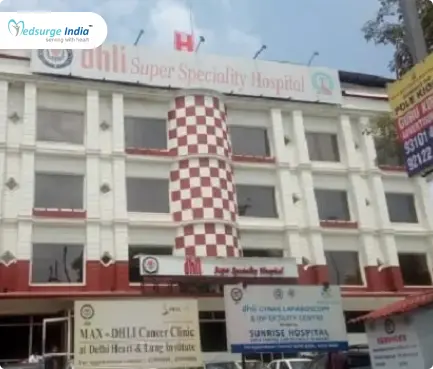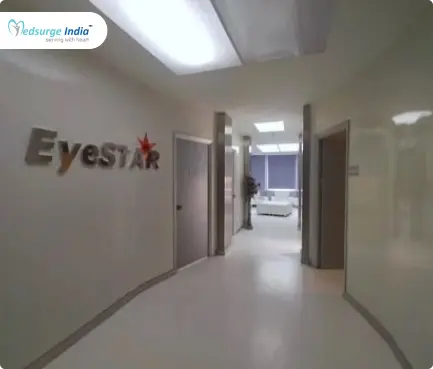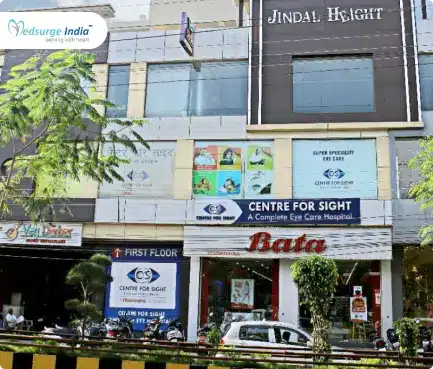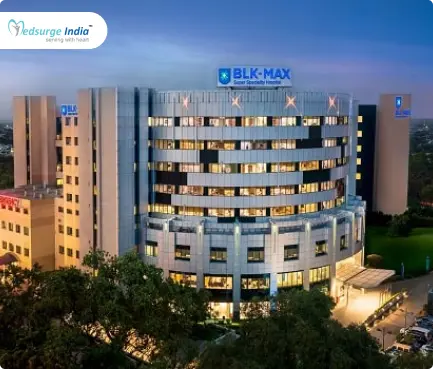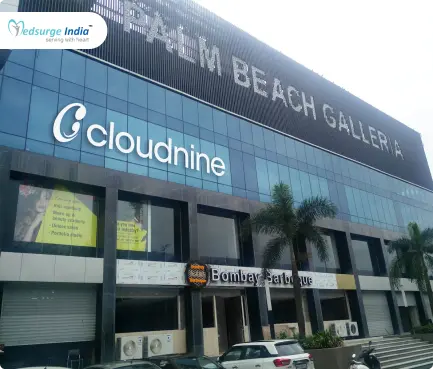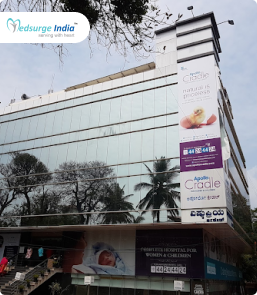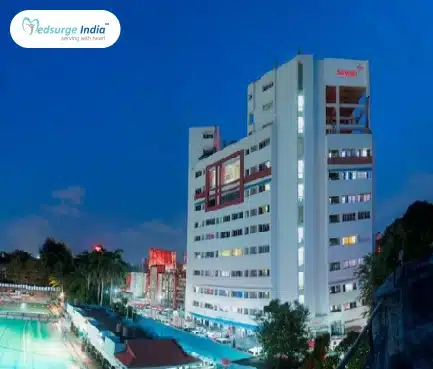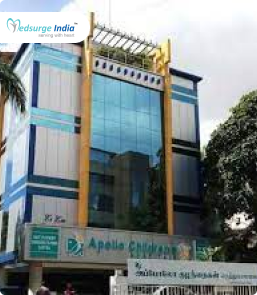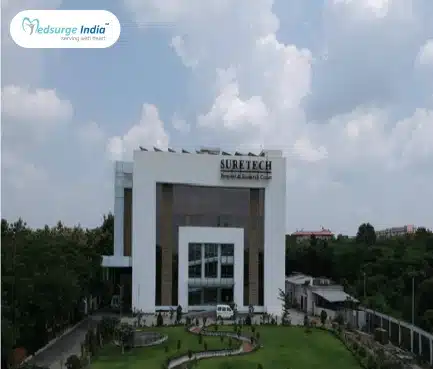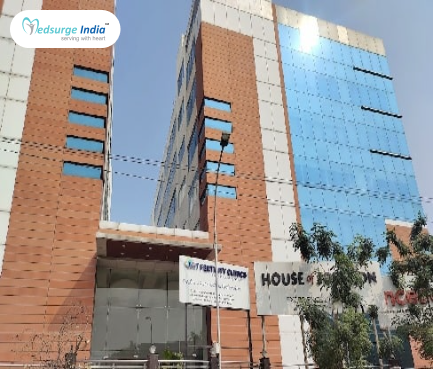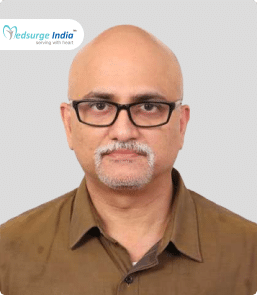
Living with the pain of kidney stones can be a ghastly experience. Thanks to modern advancements in the field of Urology, the risks and side effects of kidney stone removal are minimal. We will guide you in selecting the most suitable procedure that fits your budget, so you can leave Kidney pain behind for good.
Also, Kidney stone removal surgery in India is less expensive than in other affluent nations such as the United States, Russia, Europe, and so on. The achievement was made possible in part by the advanced medical technology used in Indian institutions and the expertise of urologists and nephrologists.
In addition to these benefits, one of the major factors strengthening India’s reputation abroad is its ability to provide affordable kidney stone removal surgery cost in India without compromising clinical standards. The price of kidney stone removal surgery in India might be lower or more depending on the hospital, the doctor’s qualifications, and a number of other variables.
What Are Kidney Stone?
The terms calculi (plural) and calculus (single) are also used to refer to kidney stones. A renal calculus occurs when it develops in the kidney. There’s a thing called a urethral calculus, which is a stone that forms in the ureter, which connects the kidney and bladder. Typically, passing a stone is quite painful. Many people, however, are able to pass stones with simply a “muscle ache” in the back, and they might not realize this until the stone “pops out.”
Causes Of Kidney Stone
Although the precise origins of kidney stone development are not fully understood, the majority of reliable sources hold that stones are the consequence of mineral crystallisation and supersaturation in urine. Genetics, the environment, age, sex, urinary infections, food, and metabolic disorders all play a role in stone formation. The main factors are as follows:
- Insufficient urinary drainage,
- Lack of adequate fluid intake and dehydration,
- urinary tract foreign bodies,
- excessive oxalates, calcium, and vitamin irregularities in the diet, such as vitamin A deficiency, excessive vitamin D
- urinary infections
- metabolic conditions
- Use of certain Drugs
Kidney Stones Removal Surgery Cost In India
Kidney Stones Removal Surgery Cost in India ranges from Rs. 1,08,000 to Rs. 3,00,000 (1300 USD to 3600 USD). For Kidney Stones Removal Surgery in India, the expenses are subject to variation based on the patient’s condition and the specific treatment approach chosen by the doctor following the results obtained.
Kidney Stones Removal Surgery Cost in Various Cities in India
| Cities | Starting Price |
| Delhi | 1300 USD |
| Gurgaon | 1200 USD |
| Noida | 1100 USD |
| Mumbai | 1300 USD |
| Hyderabad | 1250 USD |
| Chennai | 1300 USD |
| Kolkata | 1100 USD |
| Bangalore | 1200 USD |
Please note that the pricing and the treatment for Kidney Stones Removal Surgery cost in India will vary depending on the patient’s choice and other various factors.
Factors That Can Affect Kidney Stones Removal Surgery Cost in India
The following here are some variables that can affect Kidney Stones Removal Surgery Cost in India:
- Medication costs.
- Duration of treatment.
- Geographical location.
- Hospitalization expenses.
- Government policies and subsidies.
- Medical tourism packages.
- Hospital reputation and infrastructure.
- The expertise and experience of medical professionals.
- The type and frequency of diagnostic procedures.
- The choice of treatment modality.
Furthermore, the standard and caliber of medical services and amenities provided are comparable to esteemed healthcare establishments globally, despite taking into account expenses for lodging, food, and travel. Additionally, with the expertise of skilled physicians, Medsurge India guarantees that individuals are provided with the most cost-effective Kidney Stones Removal Surgery cost in India.
Get Free Cost Estimation
Procedure
Kidney Stone Removal Surgery
There are different methods used for the removal of kidney stones, Determined by How Big the stone is, Its own location, and type:
- Extracorporeal Shock Wave Lithotripsy (ESWL).
- Ureteroscopy
- Percutaneous Nephrolithotomy and Percutaneous Nephrolithotripsy (PCNL)
Extracorporeal Shock Wave Lithotripsy (ESWL)
ESWL uses sound waves to make powerful vibrations (shock waves) that split the stones into tiny bits that could be passed into your urine.
Procedure of ESWL
- The comprehensive treatment takes approximately 45 to 60 minutes.
- A process is done under general or local anesthesia since there is pain.
- The patient is placed on an operating table so the rock is targeted just together with all the shock waves, causing the rock to fragment. Stones are broken which are small enough to maneuver into the urine.
- Occasionally, a stent is inserted through the bladder until the kidney only before ESWL.
After Procedure
- Drinking loads of water helps the stone fragments pass. For many weeks, you might pass stone fragments.
- After a couple of days asked to strain your urine through a filter to catch the rock pieces for analysis.
- You can pass blood in your urine.
- May experience serious distress and pain as shattered stone fragments produce their way outside.
- Oral pain medication and drinking a lot of water can help relieve symptoms.
Risks of ESWL Procedure
ESWL can cause blood in the urine
Bruising on the Trunk or Stomach
Infection around the kidney and other Adjoining organs
Discomfort since the stone fragments Extend through the urinary tract
Prognosis of ESWL Treatment
Approximately 50-75 percent of patients are shown to be free of stone in three weeks of ESWL therapy. The maximum success rates are in these patients with smaller rocks (significantly less than 1 cm).
Ureteroscopy
Remove the stone with the Help of Scope.
Indication for Ureteroscopy:
Used for stones found in the ureter, particularly for stones closest to the bladder, most widely employed for the treatment of lower ureteral stones.
You may also be interested in – End-Stage Renal Disease
Know More – Kidney Cancer Treatment Cost in India
Procedure of Ureteroscopy
- It’s usually done as an outpatient procedure and doesn’t need hospitalization
- A little scope is placed into the bladder and ureter.
- It allows the urologist to view in the ureter, locate the stone, and remove it.
- The surgeon enters a very small wire basket in the lower ureter through the bladder, grabs the rock, and pulls the rock free.
- If the stone is too big or too closely stuck in the ureter, it could be fragmented and eliminated.
After Procedure
- Ordinarily, the patient is monitored for several hours and then Permitted to return home
- Antibiotics and painkillers prescribed
- A patient was Advised to keep a check on warning signs of Disease
Helpful – How Diabetes Can Be Responsible for Kidney Disorders?
Risks of Ureteroscopy
- Infection
- Bleeding
- Injury to the ureter
Percutaneous Nephrolithotomy and Percutaneous Nephrolithotripsy (PCNL)
Surgery to remove huge stones from the kidney through tools inserted through a tiny incision at the back. The purpose is to take out each of the stones so that you’re compelled to maneuver through the urinary tract.
Indication for Percutaneous Nephrolithotomy and Percutaneous Nephrolithotripsy
- Used in patients with large or irregularly shaped kidney stones
- Individuals with Illnesses
- Stones Who have not been Split with ESWL
- In cases where ureteroscopy is Impossible
- Stones larger than 2 cm
Procedure
- The process takes approximately 20 to 45 minutes depending on the place of the stone
- The process is done under anesthesia
- A little incision is made on the trunk to go into the kidney
- A nephroscope and other tiny tools are complex through the pit
- If the stone has been removed through the tube, it’s known as nephrolithotomy.
- If the stone is divided and then eliminated, it’s known as nephrolithotripsy.
- The surgeon, high-grade audio waves to break up the stone, and uses a suction system to clean up
After Procedure
- The patient is put under observation in hospital for 2-3 times
- Regular monitoring of vitals
- Compounds and pain killers prescribed
- Strenuous Action to be avoided Originally
Risks of procedure
- Infection
- Bleeding
Helpful :
Best Urologists in India
- Dr. Narender Kumar Magu
- Dr. Jayant Arora
- Dr. Yatinder Kharbanda
- Dr. Samit Chaturvedi
- Dr. Chandra Kant Kar
- Dr. Vikram Barua Kaushik
- Dr. S. V. Kotwal
- Dr. Anil Kumar Gulia
- Dr. Mandeep Dhanda
- Dr. Yajvendra Pratap Singh Rana
How to Choose a Hospital For Kidney Stones Removal Surgery In India
Hospitals that perform Kidney Stones Removal Surgery in India are well-known for their hospitality and patient care services providing the finest hospital and doctors in India. However, choosing a suitable hospital for Kidney Stones Removal Surgery in India can be difficult for an international patient. It is a significant decision that must be made with several factors in mind, including:
- Quality certificates and accreditations
- Hospital and transportation facility location
- Team of doctors and surgeons
- Advanced diagnostic and therapeutic equipment
- International patient assistance
Best Hospital for Kidney Stones Removal Surgery in India
- Fortis Hospital, Gurgaon
- Manipal Hospital, Bangalore
- Fortis Hospital Noida
- Apollo Hospitals, Greams Road, Chennai
- Indraprastha Apollo Hospital, New Delhi
- Amrita Hospital, Faridabad
Why do Individuals Prefer to Have Kidney Stones Removal Surgery in India
Certainly, India is a popular destination for those seeking Kidney Stones Removal Surgery and medical procedures. Kidney Stones Removal Surgery cost in India is typically a fraction of the cost of a comparable procedure and consideration in the United States and other developed countries. In any case, the Kidney Stones Removal Surgery cost in India may vary depending on the type of medical procedure, the use of inserts, and the patient’s other conditions. As a result, the final charges for Kidney Stones Removal Surgery in India given to patients are entirely based on their clinical reports, as well as the patient’s current condition, type of medical procedure, type of room, the specialist’s skill, and hospital brand.
The best hospitals for Kidney Stones Removal Surgery in India provide comprehensive appropriate treatment, including comprehensive pre-operative evaluations, minimally invasive surgical options, and post-operative rehabilitation programs. Patients can expect personalized treatment, individualized attention, and compassionate care at these medical facilities. The hospitals are accredited by top international organizations such as the National Accreditation Board for Hospitals and Healthcare Providers (NABH) or the Joint Commission International (JCI).
How Can Medsurge India Help
Medsurge India is a prestigious support system for patients looking for doctors, hospitals, and specialized treatments. Our staff will provide you with a list of licensed, renowned, and trustworthy physicians and medical facilities in relation to your medical needs. We offer a variety of treatment options to fit your individual needs, as well as a budget-friendly approach. Besides that, we are able to assist patients in obtaining travel authorizations, and medical visas, as well as a wide range of other things in the process of their treatment.
The Most Important Frequently Asked Questions
Q: How Can Kidney Stones Be Prevented?
A. Prevention of kidney stones may have a combination of lifestyle modifications and drugs.
- Drinking water during the day.
- Eat fewer oxalate-rich foods.
- Select a diet low in salt and animal protein.
- Precaution while choosing calcium supplements
- Drugs – Medications can control the number of salts and minerals in your urine and might be useful in people who form certain sorts of stones.
Q: How Are Kidney Stones Diagnosed?
A. Kidney stones can be diagnosed by:
- Blood studying: blood tests may reveal an excessive amount of calcium or uric acid in the blood.
- Urine testing: The 24-hour urine collection evaluation may demonstrate that you are excreting a lot of stone-forming minerals or a number of stone-preventing substances.
- Imaging: easy abdominal X-rays, computerized tomography (CT) that will reveal even Little stones
- Ultrasound
- Intravenous urography
Q: What Is the Conservative Method of Kidney Stone Treatment?
A: Most little kidney stones do Not require invasive treatment, the course of Actions is:
- Drinking water: consuming up to 2 to 3 liters per day might help flush out of your gastrointestinal system.
- Pain relievers: Sometimes given to look after the pain.
- Medical treatment: The doctor can provide you a medicine to help your kidney stones.
Q: Why Are Passed Stones Analyzed?
A: Laboratory analysis shows that the makeup of their kidney stones. The physician uses this information to ascertain the reason behind the formation of kidney stones and avoidance.
Q: When Is It Urgent That the Patient Is Treated with a Procedure to Remove Kidney Stones?
A: In certain instances, the surgeon will cure you instantly. It’s urgent to get rid of kidney stones when you have an illness, acute pain, even if your kidney function is deranged, in the event that you just have one kidney or have had a kidney transplant or in case you’ve got big stones or rocks in the kidneys.
Q: How Long Does It Take for Kidney Stones to Pass?
A: Variable from several hours later, the kidney stones will pass, likely during urination. Normally, stones choose between one and three months to maneuver.
Q: When Can ESWL Be Used?
A. Stones that are smaller than 2 cm in diameter are the best size for SWL.
Q: When Is the ESWL Procedure Avoided?
A. It is avoided in cases of :
- Pregnant girls using stones as x-ray and shock waves have been awarded
- Individuals with bleeding disorders,
- Diseases,
- Morbidly obese
Q: What Are the Advantages and Disadvantages of ESWL Treatment?
A. Advantage: The principal benefit is the fact that it treats kidney stones with no incision thus reducing hospital stays and recovery periods.
Disadvantage: It does not necessarily work. After SWL, roughly 5Opercent of individuals will be rock-free inside a month. In the others, rock fragments of different sizes stay. Occasionally a repeat process is necessary. SWL has the capability to cause kidney injury.
Top Hospitals for Kidney Stones Removal Surgery in India
Top Doctors for Urology Treatment
Dr. Arnab Krishna Deb
Senior Consultant
Experience: 33+ years of experience
Narayana Multispeciality Hospital, Andul Road, Howrah
Howrah, India
Dr. Pragnesh Desai
Consultant
Experience: 15 years of experience
Max Super Speciality Hospital, Saket
New Delhi, India
Dr. Rohit Kaushal
Senior Consultant
Experience: 15 years of experience
Max Super Speciality Hospital, Saket
New Delhi, India
Dr. Giridhar Venkatesh
Consultant
Experience: 12 years of experience
BR Life Hospitals, Bangalore
Bangalore, India
Dr. Anandan N
Consultant
Experience: 42 years of experience
Kauvery Hospital Formely Fortis Hospital, Vadapalani
Chennai, India
Dr. Sudhir Chadha
Senior Consultant
Experience: 26 years of experience
Sir Ganga Ram Hospital, New Delhi
New Delhi, India
Dr. Priyadarshi Ranjan
Additional Director MCh, MBBS
Experience: 18 years of experience
Fortis Hospital, Mohali
Mohali, India
Dr. Dushiant Sharma
Experience: 11+ years of experience
Max Super Speciality Hospital Bathinda
Bathinda, India
Dr. Amit Bansal
Senior Consultant
Experience: 14 years of experience
Max Super Speciality Hospital, Saket
New Delhi, India
Dr. V. Sreedhar Reddy
Senior Consultant
Experience: 13 years of experience
Apollo Hospital Bangalore Bannerghatta Road
Bangalore, India




